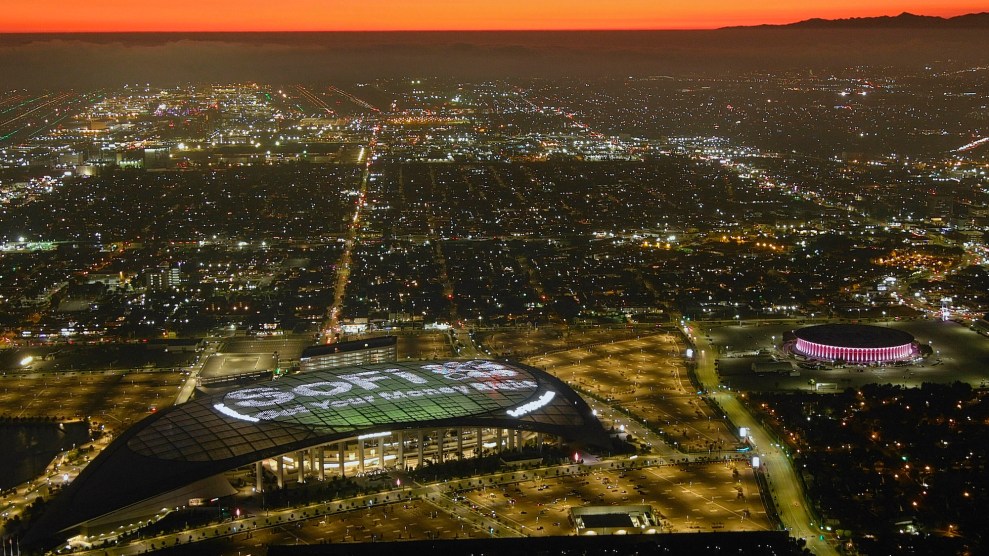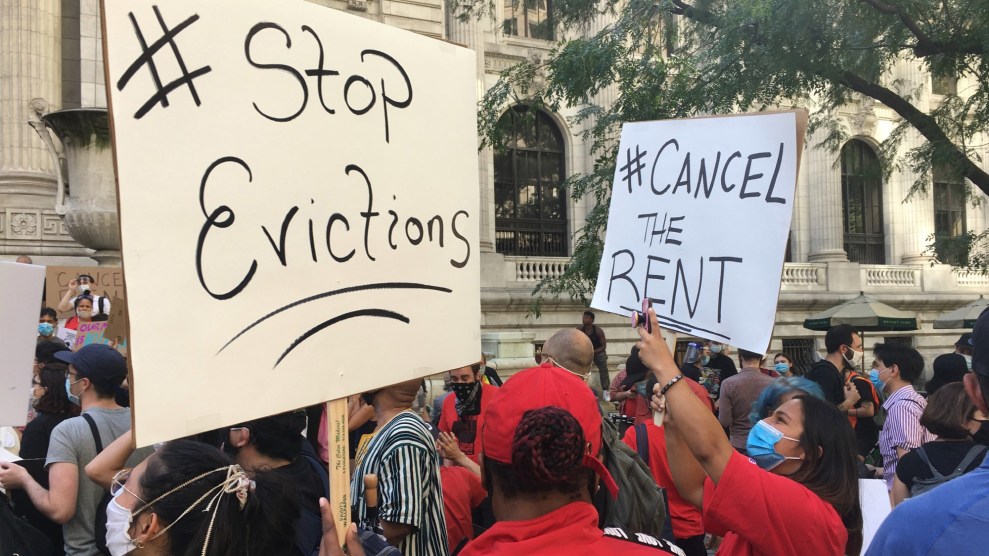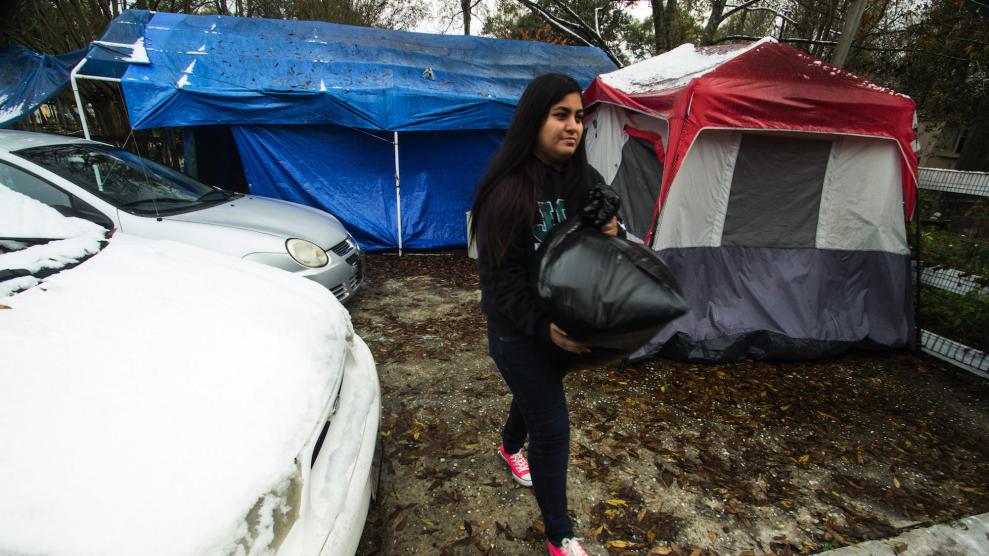
The new SoFi stadium.Kirby Lee/AP
The Super Bowl face-off between the Rams and the Bengals today is expected to bring $500 million to Los Angeles via payments to hotels, bars, and restaurants, and the associated local taxes. “This is something that has a multiplier effect for everybody,” Mayor Eric Garcetti said at a recent press conference.
But the renters of Inglewood, California, where the SoFi stadium is located, are stuck with the negative economic fallout: eight years of soaring housing costs as the nation’s most expensive stadium spurred rapid redevelopment in their neighborhoods.
A recent Los Angeles Times investigation found that since 2016, when the National Football League approved the Rams’ move to Inglewood—where more than 60 percent of residents are renters—the average monthly rent for a 1-bedroom apartment has surged from $1,100 to $1,750. As the stadium was built, at least one landlords hiked those rents by more than $1,500. “It makes you feel pushed out, like, ‘We don’t need you guys no more, the upper class is going to be moving in,'” Tomisha Pinston, who lived next door to the stadium site, told the paper in 2019, after she received notice from her landlord that her rent would more than double, from $1,145 to $2,725.
As a result, families are leaving. “People who never live here, they’re coming in,” Miguel Alvarado, the pastor of a church across the street from the new stadium complex, told Sports Illustrated. “They’re pulling people out from the neighborhood because the rent, the houses, is very expensive now.”
The city passed a rent control ordinance for older buildings in 2019, limiting the kind of increase experienced by Pinston, but landlords can still raise rents to “market rate”—as high as they can get—when one tenant leaves and a new one comes in.
What’s happening in Inglewood isn’t just a story of displacement. Soaring property values—around 90 percent from 2016 to 2021, outpacing growth elsewhere in the city region—are a boon for the minority of Inglewood’s population who own their homes. “What we’ve done in Inglewood is different,” Mayor James T. Butts Jr. told the Los Angeles Times. “We raised the value of properties that are owned by a population that is 92 percent Black and brown. Now they’re accumulating generational wealth, the same as their neighbors in Manhattan Beach, Torrance, Pasadena, Redondo Beach.”
But others are being pushed out more literally: In preparation for today’s Super Bowl LVI, work crews have cleared out encampments of people who have made temporary homes beneath underpasses and near highway entrance ramps.















